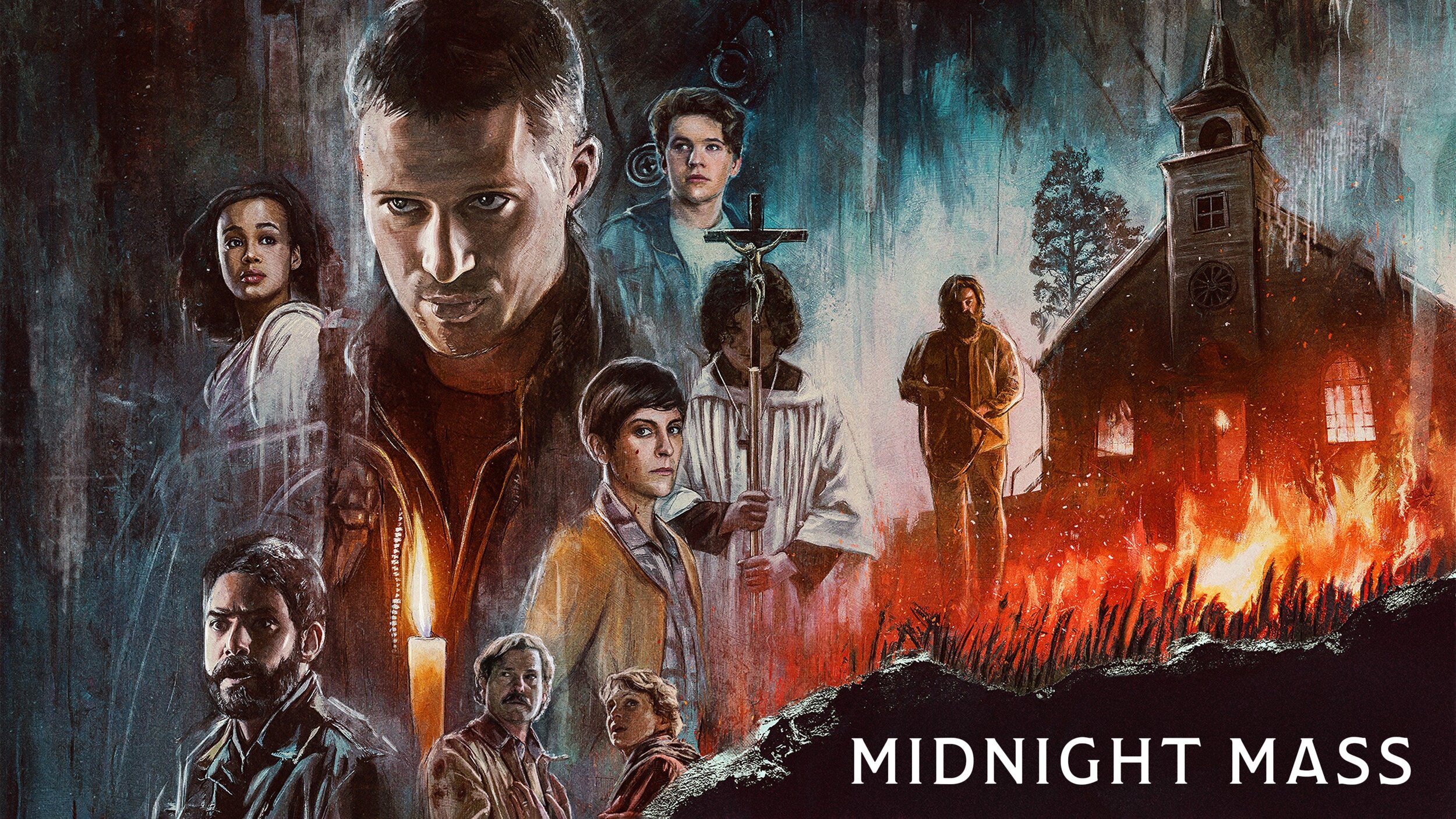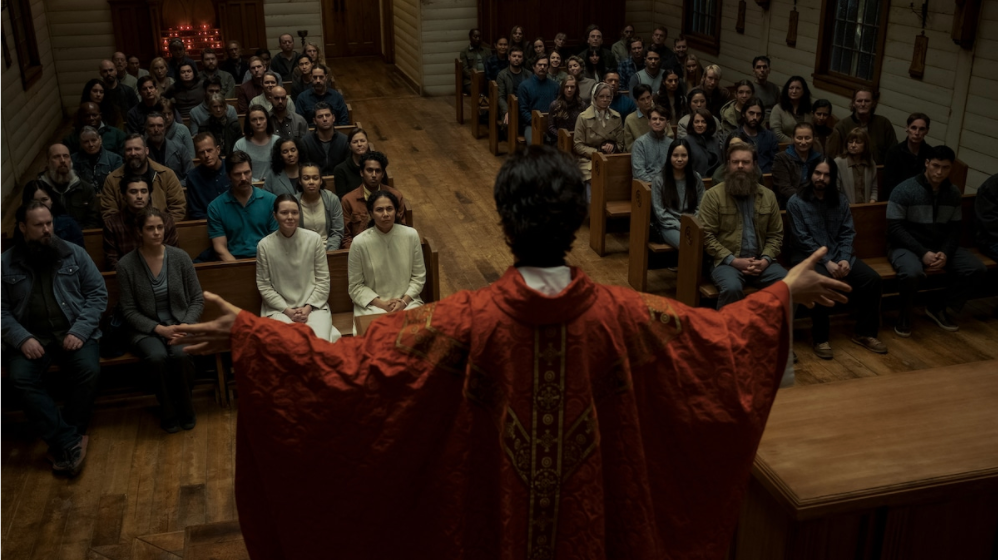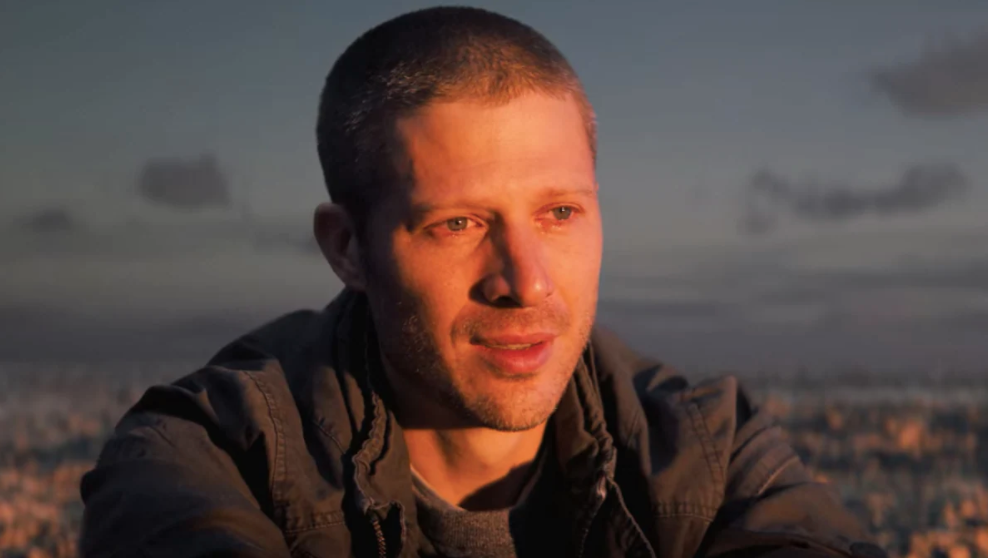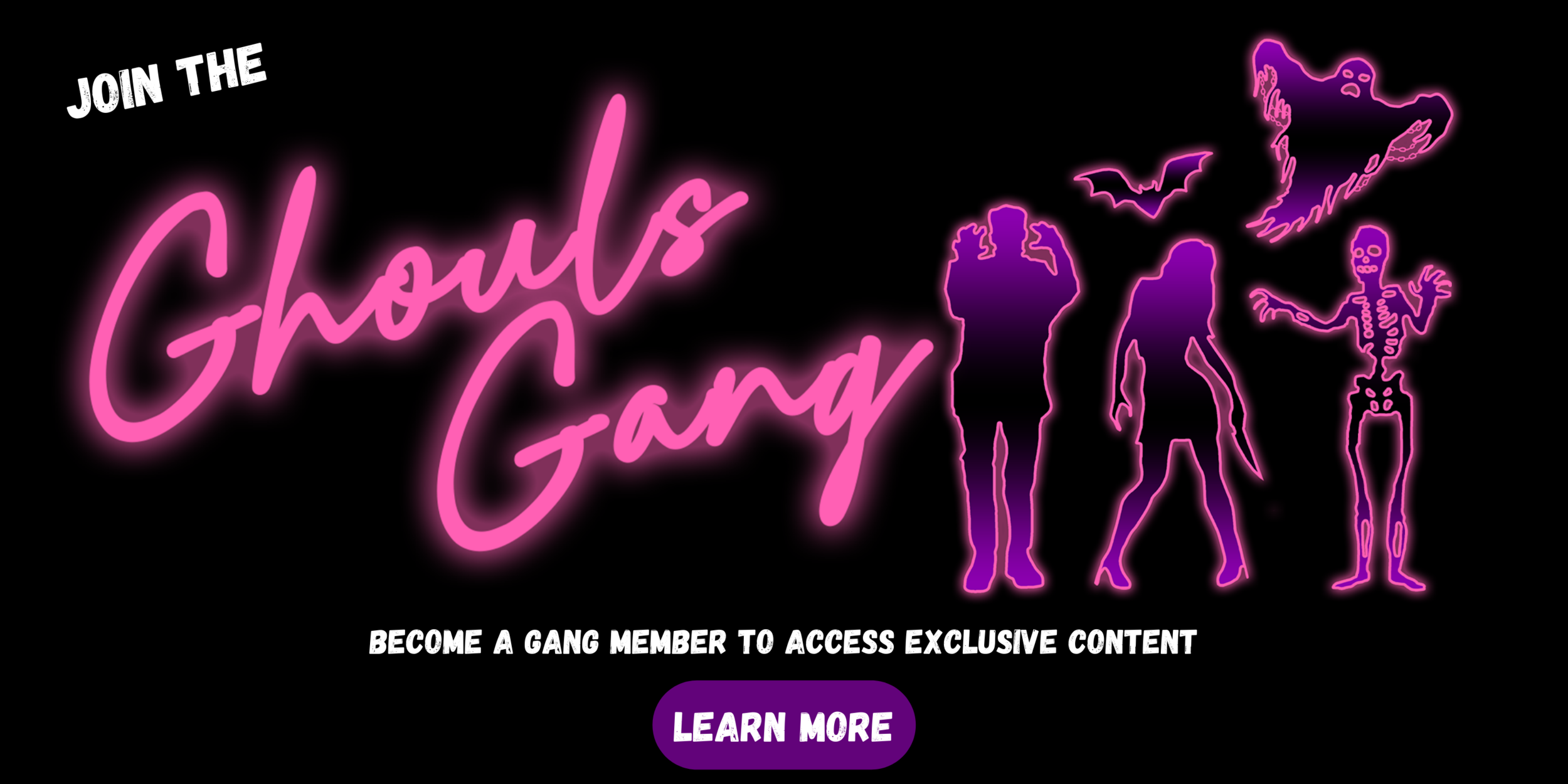[TV Review] Midnight Mass (2021)

“There is no time. There is no death. Life is a dream. It’s a wish. Made again and again and again and again. And I’m all of it. I am everything. I am all. I am that I am.”
Hymns have never felt so threatening in this third TV series from horror darling Mike Flanagan. Midnight Mass takes us into the world of the deeply religious and close-knit community of Crocket Island where a new priest’s appearance coincides with both miracles and tragedies.
Mike Flanagan’s specific brand of horror is quickly becoming iconic. A humanist story beset with deep-seated personal traumas peppered with jump scares, ghosts, and all manner of things that go bump in the night. His specific alchemy for making entertaining horror out of personnel baggage is emulated by many and mastered by few. Midnight Mass, while lacking the visceral terror of The Haunting of Hill House or the gut-punch emotion of The Haunting of Bly Manor, is a worthy addition to his canon of gospels (pun intended).
We follow Riley Flynn (Zach Gilford) on his anxiety-ridden return to his home of Crocket Island 30 miles off the coast of Washington state after spending several years serving a prison sentence for manslaughter while driving drunk. He’s haunted by the patented, glowy-eyed sleep demon of the dead teenage girl and in the doghouse with his father (Henry Thomas) who both resents Riley’s escape from the island to the urban sprawl of Chicago and is horrified by what his son has done with his life.

As Riley tries to reintegrate himself into the community that includes his childhood sweetheart Erin (Kate Siegel), an overly zealous school teacher and church leader Bev (Samantha Sloyan), and a new, practicing Muslim Sheriff Hassan of an all Catholic island (Rahul Kohli), Father Paul (Hamish Linklater) arrives to replace the town’s beloved, aging priest who has fallen ill while on a pilgrimage to Jerusalem ahead of the Easter season.
Father Paul quickly proves charismatic and gifted, as miracles of healing begin to occur on the island and more and more denizens file into the pews of St. Patrick’s to get a taste of the divine. But something more is lurking beyond the altars and sacrament, a dark truth to Father Paul and the unholy root of his apparent powers.

The climax of this story is one that sounds ridiculous on paper and was likely a tough sell while pitching (Netflix already passed on the show once back in 2014) and clearly came from the wandering mind of a bored Catholic schoolboy dreaming of nightmares between homilies. Its scares are slow to boil and shrouded in a winding mystery (though there was at least one jump scare that managed to get me, if not nearly at the level of Hill House’s now-famous one). It’s an exercise that makes slow horror work well in a series of films conflating arthouse with long-winded atmospheric shots where nothing happens. Flanagan knows how to keep the mind and heart engaged even when the pulse isn’t rushing and it has a lot to do with his wonderfully believable characters.
Catholicism and all its aesthetics and rituals are no strange terrain for horror creators. But in perhaps one of the best meditations on the nature of faith since The Exorcist, Mike Flanagan has delivered a piece that not only includes all the odd and admittedly creepy trappings of Catholic ceremony but leans in with vigor to its motifs and themes that salt an incredibly textured story.

Playing like an ex-Catholic having a conversation with himself, Midnight Mass takes audiences on a journey into a deeply religious world from every possible angle of approach: the former altar boy turned atheist, the holier-than-thou wannabe nun, the secular believer who comes for the tradition, the fanatic yet ultimately earnest priest, the outsiders without a house of worship of their own. Each facet of religion is explored, at times under a microscope. And even this manages to avoid didacticism or tone-breaking philosophical lectures.
But, if there is a sin to be found in Flanagan’s piece, it’s in the script itself where many fans by now have noted the excessive use of monologue (criticism Flanagan has humorously accepted) and while the story pays off with its most well-rendered monologue, by the last episode you find yourself preparing to settle in for a 5+ minute scene when a character opens their mouth. I like to think of this as playing into the Catholic themes of the show--confessions and homilies--or perhaps it’s a holdover from the show’s previous incarnation as a book. But who can blame Flanagan for taking the time to air out his soul and, honestly, who can blame many of the characters? Flanagan, rather than falling in line with some nonchalant guy-with-a-cigarette-and-whiskey speaking with cool indifference about the nature of the world, earnestly invites us into his philosophy, his personal hopes, his visceral fears, without the fear of being caught trying.
Once again Mike Flanagan proves that it’s not the fall season without one of his gut-wrenching, stylized horror-tinged forays into the human soul.

When people think of horror films, slashers are often the first thing that comes to mind. The sub-genres also spawned a wealth of horror icons: Freddy, Jason, Michael, Chucky - characters so recognisable we’re on first name terms with them. In many ways the slasher distills the genre down to some of its fundamental parts - fear, violence and murder.
Throughout September we were looking at slasher films, and therefore we decided to cover a slasher film that could be considered as an underrated gem in the horror genre. And the perfect film for this was Franck Khalfoun’s 2012 remake of MANIAC.
In the late seventies and early eighties, one man was considered the curator of all things gore in America. During the lovingly named splatter decade, Tom Savini worked on masterpieces of blood and viscera like Dawn of the Dead (1978), a film which gained the attention of hopeful director William Lustig, a man only known for making pornography before his step into horror.
Looking for some different slasher film recommendations? Then look no fruther as Ariel Powers-Schaub has 13 non-typical slasher horror films for you to watch.
Even though they are not to my personal liking, there is no denying that slasher films have been an important basis for the horror genre, and helped to build the foundations for other sub-genres throughout the years.
But some of the most terrifying horrors are those that take place entirely under the skin, where the mind is the location of the fear. Psychological horror has the power to unsettle by calling into question the basis of the self - one's own brain.
On Saturday, 17th June 2023, I sat down with two friends to watch The Human Centipede (First Sequence) (2009) and The Human Centipede 2 (Full Sequence) (2012). I was nervous to be grossed out (I can’t really handle the idea of eating shit) but excited to cross these two films off my list.
Many of the most effective horror films involve blurring the lines between waking life and a nightmare. When women in horror are emotionally and psychologically manipulated – whether by other people or more malicious supernatural forces – viewers are pulled into their inner worlds, often left with a chilling unease and the question of where reality ends and the horror begins.
Body horror is one of the fundamental pillars of the horror genre and crops up in some form or another in a huge variety of works. There's straightforward gore - the inherent horror of seeing the body mutilated, and also more nuanced fears.
In the sweaty summer of 1989, emerging like a monochrome migraine from the encroaching shadow of Japan’s economic crash, Shin’ya Tsukamoto’s Tetsuo: The Iron Man shocked and disgusted the (very few) audiences originally in attendance.
Whether it's the havoc wreaked on the human body during pregnancy, emotional turmoil producing tiny murderous humans or simply a body turning on its owner, body horror films tend to be shocking. But while they're full of grotesque imagery, they're also full of thoughtful premises and commentary, especially when it comes to women, trauma, and power.

RELATED ARTICLES
For years, I have been a woman obsessed with the sensational work of manga writer and artist Junji Ito
Originally starting in the Netherlands in 1999, Big Brother is a hit reality show that derived its name from a character in George Orwell’s dystopian novel, Nineteen Eighty-Four. Throughout its run, Big Brother has spawned over 500 series across 62 countries to date.
Buffy Anne Summers is more than just a vampire slayer. She taught us to be brave. To never give up and to always fight for who and what we love, all whilst wearing a cute outfit in the process. That is why 19 years after its final episode, Buffy the Vampire Slayer remains a cult classic that will make a difference to more generations to come. Remember, if the apocalypse calls, beep me!
Rather than a retro ‘60s comic book queen or a ‘90s sitcom with a teenager and a talking cat, Sabrina Spellman of The Chilling Adventures of Sabrina (CAOS) is a 21st century witch with 17th century problems.
brothers Dean and Sam travel cross country on the hunt for demons, ghosts and things that go bump in the night…
The film Scream (1996) was self-aware slasher at its finest…
Marianne, born on Tuesday, she was happy on Wednesday, got married on a Thursday, became a witch on a Friday…
The latest Shudder Exclusive documentary takes a dip into the horror vaults to follow the life and career of Universal’s Frankenstein’s Monster, Boris Karloff
Created by The Boulet Brothers, Dragula follows the trials and tribulations of eleven contestants as they battle it out to be drag’s number one super monster…
Behind The Monsters is an in depth examination of how some of the most famous horror antagonists were created…

EXPLORE
Films that blend horror with romance always fascinate me; add a niche contemporary setting that I’ve never heard of before and I’m hooked. Cannibal Mukbang was made by Aimee Kuge, a young woman from New York, and I was privileged to spend a little time talking with her over Zoom…
Now it’s time for Soho’s main 2023 event, which is presented over two weekends: a live film festival at the Whirled Cinema in Brixton, London, and an online festival a week later. Both have very rich and varied programmes (with no overlap this year), with something for every horror fan.
In the six years since its release the Nintendo Switch has amassed an extensive catalogue of games, with everything from puzzle platformer games to cute farming sims to, uh, whatever Waifu Uncovered is.
A Quiet Place (2018) opens 89 days after a race of extremely sound-sensitive creatures show up on Earth, perhaps from an exterritorial source. If you make any noise, even the slightest sound, you’re likely to be pounced upon by these extremely strong and staggeringly fast creatures and suffer a brutal death.
Have I told you about Mayhem Film Festival before? It’s a favourite event of mine, so I’ve blurted about it in anticipation to many people I know. The event has just passed, so now is the time to gush its praises to those I don’t know.
Loop Track, Thomas Sainsbury’s directorial debut, has such a sparse description that it’s really difficult to know what you’re stepping into when it starts. It’s about Ian (played by the director), who is taking a trek through the New Zealand bush….
For a movie that doesn’t even mention the word “vampire” once throughout the length of the film, Near Dark (1987) is a unique entry in the vampire film genre.
If you like cults, sacrificial parties, and lesbian undertones then Mona Awad’s Bunny is the book for you. Samantha, a student at a prestigious art university, feels isolated from her cliquey classmates, ‘the bunnies’.
Kicking off on Tuesday 17th October, the 2023 edition considers the cinematic, social and cultural significance of the possessed, supernatural and unclean body onscreen.
I was aware of the COVID-19 pandemic before I knew that’s what it would be called, and before it ever affected me personally. My husband is always on top of world events, and in late 2019, he explained what was happening around the globe.


![[Editorial] 5 Slasher Short Horror Films](https://images.squarespace-cdn.com/content/v1/5fe76a518d20536a3fbd7246/1696358009946-N8MEV989O1PAHUYYMAWK/Screenshot+2023-10-03+at+19.33.19.png)
![[Ghouls Podcast] Maniac (2012) with Zoë Rose Smith and Iona Smith](https://images.squarespace-cdn.com/content/v1/5fe76a518d20536a3fbd7246/1696356006789-NYTG9N3IXCW9ZTIJPLX2/maniac.jpg)
![[Editorial] If Looks Could Kill: Tom Savini’s Practical Effects in Maniac (1980)](https://images.squarespace-cdn.com/content/v1/5fe76a518d20536a3fbd7246/1694952175495-WTKWRE3TYDARDJCJBO9V/Screenshot+2023-09-17+at+12.57.55.png)
![[Editorial] Deeper Cuts: 13 Non-Typical Slashers](https://images.squarespace-cdn.com/content/v1/5fe76a518d20536a3fbd7246/1694951568990-C37K3Z3TZ5SZFIF7GCGY/Curtains-1983-Lesleh-Donaldson.jpg)
![[Editorial] Editor’s Note: Making a slash back into September](https://images.squarespace-cdn.com/content/v1/5fe76a518d20536a3fbd7246/1694354202849-UZE538XIF4KW0KHCNTWS/MV5BMTk0NTk2Mzg1Ml5BMl5BanBnXkFtZTcwMDU2NTA4Nw%40%40._V1_.jpg)
![[Editorial] 8 Mind Horror Short films](https://images.squarespace-cdn.com/content/v1/5fe76a518d20536a3fbd7246/1693504844681-VPU4QKVYC159AA81EPOW/Screenshot+2023-08-31+at+19.00.36.png)
![[Editorial] Eat Shit and Die: Watching The Human Centipede (2009) in Post-Roe America ](https://images.squarespace-cdn.com/content/v1/5fe76a518d20536a3fbd7246/1691245606758-4W9NZWE9VZPRV697KH5U/human_centipede_first_sequence.original.jpg)
![[Editorial] Top 15 Female-Focused Mind Horror Films](https://images.squarespace-cdn.com/content/v1/5fe76a518d20536a3fbd7246/1691247166903-S47IBEG7M69QXXGDCJBO/Image+5.jpg)
![[Editorial] 8 Body Horror Short films](https://images.squarespace-cdn.com/content/v1/5fe76a518d20536a3fbd7246/1690838270920-HWA5RSA57QYXJ5Y8RT2X/Screenshot+2023-07-31+at+22.16.28.png)
![[Editorial] Metal Heart: Body Dysmorphia As A Battle Ground In Tetsuo: The Iron Man (1989)](https://images.squarespace-cdn.com/content/v1/5fe76a518d20536a3fbd7246/1690190127461-X6NOJRAALKNRZY689B1K/Screenshot+2023-07-24+at+10.08.27.png)
![[Editorial] Top 15 Female-Focused Body Horror Films](https://images.squarespace-cdn.com/content/v1/5fe76a518d20536a3fbd7246/1689081174887-XXNGKBISKLR0QR2HDPA7/download.jpeg)
![[TV Review] Junji Ito Maniac: Japanese Tales of the Macabre (2023)](https://images.squarespace-cdn.com/content/v1/5fe76a518d20536a3fbd7246/1675626891240-UYL6BTD1GV9I3UEUQPZG/image2.jpg)
![[TV Review] Dead Set (2008)](https://images.squarespace-cdn.com/content/v1/5fe76a518d20536a3fbd7246/1664787670655-G8UTH9HDQCNBIE6K9WA2/Screenshot+2022-10-03+at+09.58.28.png)
![[TV Review] Buffy The Vampire Slayer (1997- 2003)](https://images.squarespace-cdn.com/content/v1/5fe76a518d20536a3fbd7246/1664172852528-QN3YQI0K5M7OHWXY1EKR/buffy.jpeg)
![[TV Review] The Chilling Adventures of Sabrina (2018-2020)](https://images.squarespace-cdn.com/content/v1/5fe76a518d20536a3fbd7246/1664172038833-EBYFI7STZ97CMI13AR99/SABRINA2.jpeg)
![[TV Review] Supernatural (2005-2020)](https://images.squarespace-cdn.com/content/v1/5fe76a518d20536a3fbd7246/1655573865841-QLDABX1BTQD62WL5171W/Image%2B1%2B%25284%2529.jpg)
![[TV Review] Scream TV Series (2014) Season 1](https://images.squarespace-cdn.com/content/v1/5fe76a518d20536a3fbd7246/1655656570649-S2516JEUBDALYLSRZT04/Screen-shot-2015-06-30-at-6.55.43-PM.png)
![[TV Review] Marianne (2019)](https://images.squarespace-cdn.com/content/v1/5fe76a518d20536a3fbd7246/1642852814142-Q7N595RY5ECXF1XKRC34/marianne+top.jpeg)
![[TV Review] Boris Karloff: The Man Behind the Monster (2021)](https://images.squarespace-cdn.com/content/v1/5fe76a518d20536a3fbd7246/1644088673462-SM7VB9ORKL7LFYE3RLGA/Image+1+%283%29.jpg)
![[TV Review] The Boulet Brothers’ Dragula Season 4](https://images.squarespace-cdn.com/content/v1/5fe76a518d20536a3fbd7246/1640260117973-N8H35J9LC5TBNV8SUFBU/Image+1+%283%29.png)
![[TV Review] Behind The Monsters (2021)](https://images.squarespace-cdn.com/content/v1/5fe76a518d20536a3fbd7246/1636655798596-NOAWXH9FGRLY4TVXUPSX/Image+1+%285%29.jpg)





















![[Editorial] Soho Horror Film Festival: Interview with Aimee Kuge on Cannibal Mukbang](https://images.squarespace-cdn.com/content/v1/5fe76a518d20536a3fbd7246/1701808004722-9M8SZ2UXY52QBQBR4NTI/img20230818_15150780.JPG)
![[Editorial] 10 Films & Events to Catch at Soho Horror Film Fest 2023](https://images.squarespace-cdn.com/content/v1/5fe76a518d20536a3fbd7246/1700819417135-299R7L4P0B676AD3RO1X/Screenshot+2023-11-24+at+09.41.52.png)
![[Editorial] 9 Horror Nintendo Switch Games To Play](https://images.squarespace-cdn.com/content/v1/5fe76a518d20536a3fbd7246/1697214470057-3XZXX8N4LYIMDFWS6Z3P/Screenshot+2023-10-13+at+17.20.13.png)
![[Mother of Fears] Mothering in Silence in A Quiet Place (2018)](https://images.squarespace-cdn.com/content/v1/5fe76a518d20536a3fbd7246/1696445921315-HZJ2DZYQIH6VVWXBO2YL/Screenshot+2023-10-04+at+19.52.29.png)
![[Event Review] Highlights from Mayhem Film Festival 2023](https://images.squarespace-cdn.com/content/v1/5fe76a518d20536a3fbd7246/1697624582491-MPT2VB9RRGU6OG7L6UKL/Mayhem+2023.jpg)
![[Editorial] Mayhem Festival: Interview with Thomas Sainsbury on Loop Track (2023)](https://images.squarespace-cdn.com/content/v1/5fe76a518d20536a3fbd7246/1697186472899-WC4RR0TW7L7LMFEBGPA2/Tom+Sainsbury.jpg)
![[Editorial] Keeping Odd Hours: A Retrospective on Near Dark (1987)](https://images.squarespace-cdn.com/content/v1/5fe76a518d20536a3fbd7246/1696445070868-HU9YIL3QPBCL1GW47R3Z/Screenshot+2023-10-04+at+19.36.53.png)
![[Editorial] 5 Female Focused Horror Book Recommendations](https://images.squarespace-cdn.com/content/v1/5fe76a518d20536a3fbd7246/1696441981361-52EQCTJ7AT2QF1927GM7/919xtm6d3fL._AC_UF894%2C1000_QL80_.jpg)
![[Editorial] What to Watch at This Year's Cine-Excess International Film Festival 2023](https://images.squarespace-cdn.com/content/v1/5fe76a518d20536a3fbd7246/1697213510960-REV43FEOZITBD2W8ZPEE/Screenshot+2023-10-13+at+17.01.15.png)
![[Editorial] Cherish Your Life: Comfort in the SAW Franchise Throughout and Beyond the COVID-19 Pandemic](https://images.squarespace-cdn.com/content/v1/5fe76a518d20536a3fbd7246/1695487675334-MYPCPYYZQZDCT548N8DI/Sc6XRxgSqnMEq54CwqjBD5.jpg)

I can sometimes go months without having a panic attack. Unfortunately, this means that when they do happen, they often feel like they come out of nowhere. They can come on so fast and hard it’s like being hit by a bus, my breath escapes my body, and I can’t get it back.